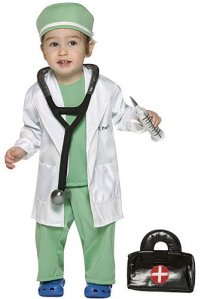
Those of you who despair that medical school admissions is too heavily driven by “numbers” may welcome the AAMC’s work towards identifying personal qualities necessary for medical school and practice while finding ways to recognize them in the admissions process. The expanded use of the MMI format for medical school interviews also reflects this trend drive to find out more about the person behind the application. As modern medicine and training change, medical students lacking particular personal characteristics are perceived as less able to learn, find job satisfaction, and deliver quality care.
It isn’t surprising that integrity and ethics, as they have always been, are absolutely necessary. The ability to respect privacy, follow rules, and tell the truth — consistently — is required.
More intriguing are the qualities that are necessary to deal with challenges in life and shortcomings in oneself. You may feel like you have to be the perfect person and student to get into medical school, but medical educators know that how you handle disappointment and problems shows your mettle. Are you flexible and resilient in the face of stress and change, or do you melt down or become angry or rigid. Do you know how to seek help and find ways to improve your areas of weakness, or do you avoid them or blame others?
How do you relate to others? Do you have experience relating to people from different backgrounds and do so effectively and respectfully? Can you work as a team member as well as independently? Do you express yourself well verbally while listening to others with empathy and respect?
Are you reliable? Do you show up to work in lab or volunteer when scheduled, even when you may not feel like it? Do you manage your activities so that you are able to fulfill your commitments rather than overextend yourself or become ineffective?
Do you want to spend the rest of your life serving others and learning new things? Most medical school applicants do, however some say they do and some show that they do. Medical schools are more convinced by demonstrated service to others and intellectual curiosity than assertions that one values these pursuits.
Every day presents you with opportunities to reflect upon and develop these personal characteristics. They are essential to your personal and professional success in medical school and beyond. If you are person who likes a plan and is a little bit of a perfectionist, think about the way you deal with unpredictability and disappointment. Could you develop your flexibility by trying a new activity or learning something outside of your usual areas of interest? Are you hanging around with the same people all the time? If so, perhaps you could spend time off campus, volunteering in the community. Taking some chances and trying new things is an excellent way to grow and develop the qualities you need for your medical training and career.

